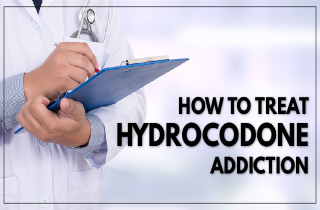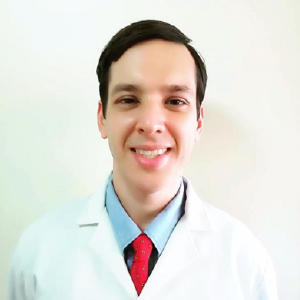Taking hydros & can’t give them up?
You are not alone!
While hydrocodone is prescribed for short periods of time to treat moderate to severe pain, some continue to use hydrocodone long after a prescription expires because of the level of relaxation and euphoria this opiate creates…which is also one of the reasons why hydrocodone over the counter is not available. In fact, developing a tolerance to hydrocodone or dependence can take as little as three weeks of continuous dosing.
—–
Having a hard time quitting hydrocodone?
Call us to talk about it.
Help is closer than you think!
—–
Here, we explore symptoms and signs of hydrocodone addiction as well as review the medicinal and behavioral treatments which treat hydrocodone addiction. Then, we invite your questions about hydrocodone addiction and treatment at the end.
Am I addicted to hydrocodone?
Where there is smoke there is fire…
There are several factors that play into any drug addiction. This is because addiction is both a physical and a psychological condition. But what distinguishes hydrocodone addiction from regular use is the psycho-emotional need for the drug to help you deal with stressors in life. Here are a few warning signs and symptoms of hydrocodone addiction to look out for if you think you or someone you know going down a risky road:
- Attempting to cut back or quit use but not succeeding.
- Feeling like you NEED hydrocodone to be able function.
- Hydrocodone use is affecting your health, work, and intimate relationships.
- Obsessing with obtaining hydrocodone and making sure you have a steady supply.
- Giving up important social, occupational or recreational activities because of hydro use.
- Spending a lot of time obtaining, using, or recovering from the use of hydrocodone.
- Taking more and more hydrocodone in order to feel the wanted effects.
- Continuing use despite the risk of developing health problems or worsening physical or physiological condition.
- Experiencing withdrawal symptoms when you stop taking hydrocodone or lower your dosage.
If you find 2 or more of these statements to describe your relationship with hydrocodone, chances are that you may have developed an unhealthy and dangerous habit.
NOTE HERE: Those who abuse this drug are usually not ONLY addicted to it. Oftentimes, people abuse other substances such as stimulants or nervous system depressants, or mix alcohol with hydrocodone.
Treating hydrocodone addiction
Effective treatment for drug addiction involves hydrocodone withdrawal symptoms treatment and long term care. And, although there is no “one right way” to treat addiction, many agree that the integration of pharmacological and behavioral treatments is key to successful recovery.
1. Medications for hydrocodone addiction treatment
Primarily, medications for hydrocodone addiction treatment target the brain.
- Clonidine or benzodiazepines are used during the phase of acute withdrawal.
- Methadone, buprenorphine and naltrexone target the opiate receptors in the brain can be used for longer-term maintenance treatment for opiate addiction.
- Antidepressant meds can also be prescribed to treat symptoms of depression which can manifest throughout addiction treatment.
Because addiction changes your brain chemistry, you may need the support of SSRI’s. A psychiatrist can prescribe these. During acute detox, your doctor and pharmacist can also suggest over-the-counter medications that can help you lessen and manage some of the other possible symptoms of withdrawal as they occur.
2. Behavioral treatments for hydrocodone addiction
Behavioral therapies treat the emotional and psychological underpinnings of addiction. This can include one-on-one and group therapy. The use of clinical psychology for addiction includes:
- Cognitive behavioral therapy (CBT)
- Contigency management
- Motivational enhancement therapy
- 12 Step facilitation therapy
The main principle of psychological treatment for hydrocodone addiction is to understand, monitor and control the compulsion to use hydrocodone to cope with life…while replacing addictive actions with more healthy choices.
8 Resources for treatment help
Where can you get help for hydrocodone addiction? There are a few key places you can turn to for help with a hydrocodone problem. We list some of the main sources of addiction treatment, here:
1. A hydrocodone abuse helpline.
You might be nervous or uncomfortable to talk to your prescribing doctor because you fear being judged or getting cut off of your medication cold turkey. Calling a hydrocodone addiction helpline allows you to be anonymous and get the information you need without any shaming or blaming.
CALL the number listed on this page for a toll-free, completely confidential, and judgement-free conversation. Helpline professionals know that it can be hard to pick up the phone. So, they have been trained to understand addiction as a medical condition. You can ask a few questions, talk to someone who is experienced in the area, and get the help that you need without revealing your name or any personal information.
2. Your general physician.
Many times, your doctor can be a good first line of contact if you want to treat hydrocodone addiction. Doctors are usually familiar with your past clinical history, and may help you taper hydrocodone doses by providing a dose-reduction regimen. Family doctors can also help you locate hydrocodone-specific treatment facilities in your local area. In addition, doctors can prescribe medication to help during hydrocodone withdrawal.
3. Clinical psychologist or psychiatrists specializing in hydrocodone addiction treatment.
There are several psychologists and psychiatrists out there that specialize in treating opiate addition. They have an intimate understanding of addiction and how it affects your body, psyche and interpersonal relationships.
Clinical psychologists can help you explore the roots of your addictive behavior, and help you to help yourself.
Clinical psychiatrists are doctors that can help you figure out if you need any medications during hydrocodone addiction recovery. They can also diagnose any underling mental conditions that exacerbate your addiction.
4. Detox clinics during hydrocodone withdrawal.
Withdrawal from any substance in its first hours can be painful and dangerous. A detox clinic provides a safe in-patient supervision for your initial detox from hydrocodone. This helps decrease your likelihood of relapse in the first few days of recovery before you seek other treatment.
5. Hydrocodone addiction treatment centers.
Hydrocodone addiction treatment centers are facilities designed to treat drug addiction. Not all treatment facilities treat all substance abuse and you may need to find one tailored to your particular needs. Addiction treatment programs are safe places where you can recover in a safe and supportive environment. A good hydrocodone addiction treatment center is holistically designed and works to treat your emotional, physical, and psychological needs. Programs at addiction treatment centers can last anywhere from a couple of weeks to a few months, or sometimes even years on end.
6. Hydrocodone addiction support groups
There are hundreds of groups out there for pharmaceutical addiction rehab support. Support groups offer a sense of community and a safe place you can talk with people who are experiencing issues of addiction, too. When looking for a support group ask your doctor, your treatment facility or a trusted spiritual/religious leader. Possible support groups include:
- 12 Step groups such as Narcotics Anonymous (NA) or Alcoholics Anonymous (AA).
- Self-help groups like SMART Recovery or Rational Recovery.
- Local outpatient support groups for drug addiction at a local hospital or mental health center.
7. Licensed Clinical Social Workers (LCSWs)
This type of social workers are trained counselors that work with people affected by mental health and substance abuse issues. They can reach out into the community, help get you back on your feet, and refer you to social services which can help you find a job, go to school, get counseling, etc. A Licensed Clinical Social Workers or LCSW can also be in charge of support groups and offer educational classes. Social workers can also help be a guide in your addiction recovery and help you navigate the early process of living hydrocodone-free. If you have been in trouble with the law they might be the point of contact.
8. A trusted religious or spiritual leader
There are many ways in which spiritual communities support and help treat addiction. Qualitative research has shown these spiritual communities, in general, increase positive recovery and influence long lasting recovery. If there is someone out there in you religious or spiritual community that you trust – seek them out. They are there for your guidance and many times host their own support groups and therapists who are donating their time to the community.
When you are ready to get better
Many people who are addicted to hydrocodone already know the truth about their problem in their subconscious mind, but choose to rationalize their behavior. Sometimes interventions can encourage a person to consider treatment. Other times people will a hit rock bottom before they are ready for help. The bottom line is: Admitting you have a problem is the first step you need to take to get ready to enter treatment for addiction to hydrocodone.
Wondering how you can find the desire to quit…for good…for yourself. Ask yourself this question: What are YOUR OWN reasons for quitting hydrocodone?
Everyone’s answer is different. You may say:
“I want to be reunited with my kids or my spouse.”
“I want to turn my health around.”
“My finances are bottomed out.”
“I need to quit due to legal pressures.”
“I am sick and tired of being sick and tired with hydrocodone”
…we’ve seen it all. Take heart!
—–
If you want to quit hydrocodone for good…you can!
We can connect you with adequate rehab options TODAY.
—–
How to treat hydrocodone addiction questions
Do you still have questions about treating hydrocodone addiction? Please share your questions and experiences with treating hydrocodone addiction. We’ll try to respond to your questions personally.











Related Posts